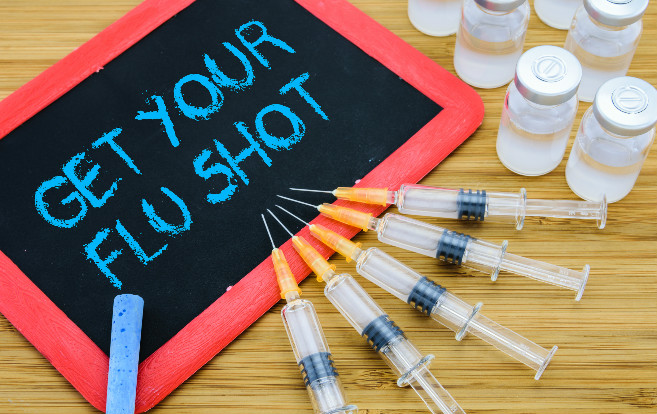ANA Recommends All Nurses Receive Vaccinations

Learn how to stay compliant, what exemptions there are and hospital policies.
By Debra Wood, RN, contributor
Nurses, get ready to roll up your sleeves. The American Nurses Association (ANA) is calling for all registered nurses, traveling nurses included, to be immunized against vaccine-preventable diseases, including measles, mumps, pertussis and influenza.
“Without a doubt the ANA has taken a bold, 21st century, reasoned and excellent position,” said Aileen M. Marty, MD, FCAP, director of the Florida International University Travel Medicine Program and Vaccine Clinic and professor of infectious diseases at the Herbert Wertheim College of Medicine in Miami.
The ANA moved forward with the new position in part due to outbreaks of measles cases affecting unvaccinated adults and children in the United States. The country declared measles eradicated in 2000. Yet the Centers for Disease Control and Prevention (CDC) reported 183 cases from January 1 to July 24, 2015, including a large, multistate outbreak associated with a visitor to Disneyland in California.
Marty said the outbreaks were largely avoidable and a result of increasing numbers of people actively declining immunizations against vaccine-preventable illnesses for themselves and their children.
“People are not getting as immunized as they should, including health care professionals,” said Ruth Francis, program specialist for nursing practice and work environment for ANA. “In order to keep the herd immunity high, nurses need to lead by example.”
The position aligns with guidelines from the CDC and its Advisory Committee on Immunization Practices. The Infectious Diseases Society of America, the Society for Healthcare Epidemiology of America and the Pediatric Infectious Diseases Society support universal immunization of health care personnel. Francis said nurses should follow the CDC vaccination guidelines.
“This is for all nurses, regardless of their practice arena,” Francis said. “Travel nurses have a little more fluidity then some other nurses, and to me that makes it even more important to be fully vaccinated.”
Francis said travel nurses also have the opportunity to take advantage of teachable moments to address patient’s reservations about vaccines. She advised travel nurses to research policies in the state in which they will be practicing.
“I think that anyone caring for vulnerable patients should do everything they can to support their complete well-being,” Matthew Faraday, RN, a charge nurse on a medical-surgical floor at Beaumont Hospital – Royal Oaks in Michigan. “I don’t think there are any ethical problems with this recommendation.”
Compliant with code of ethics
In fact, the vaccination position ties in with the ANA’s newly revised Code of Ethics for Nurses with Interpretive Statements, which considers it a nurse’s ethical responsibility to model the same health maintenance and health promotion measures as they teach, including immunization.
“A critical component of a nurse’s job is to educate patients and their family members about the effectiveness of immunization as a safe method of disease prevention to protect not only individuals, but also the public health,” said Pamela F. Cipriano, PhD, RN, NEA-BC, FAAN, president of ANA in a statement.
Exemptions
Medical and religious exemptions are allowable, provided the nurse supplies documentation from an appropriate authority supporting the request, per the ANA. Nurses receiving an exemption may be required to practice other measures to reduce disease transmission to patients and others.
Hospital policies
Some hospitals require evidence of immunity against highly communicable diseases, such as mumps, measles and rubella, before employment. For instance, Loyola University Medical Center requires nurses working with pediatric patients to keep their vaccinations up to date and obtain titers to ensure immunity to such diseases, reported Theresa Martinez, RN, MSN, CCRN, manager of the neonatal ICU and manager of the Women’s Health Division at Loyola University Health System in Chicago.
Loyola also requires annual influenza vaccinations and reports a 99 percent flu vaccination rate. Beaumont has taken a hard line on exceptions to the flu vaccine and has boosted its rates. Other hospitals with mandatory influenza policies also report high rates, such as Johns Hopkins Medicine System in Baltimore and Children’s Hospital of Philadelphia, with 99 percent influenza vaccination rates. During flu season, New York State requires all health care workers be vaccinated for flu or wear a mask, whenever the Commissioner of Health declares influenza season under way.
More information at: ANAImmunize.org
The CDC recommends adults receive vaccination against influenza annually; tetanus, diphtheria and pertussis, with a one time dose of Tdap and then a booster with Td every 10 years; two doses of varicella, if no documentation of vaccination or previous infection; human papillomavirus for males age 21 and younger and females age 26 and younger; one or two doses of measles, mumps and rubella, if no documentation of immunity; zoster for adults age 60 or older; and pneumococcal vaccine for adults age 65 or older.
Seize the opportunity--advance your career with excellent pay in thousands of locations! Apply now to travel!
ANA's revised immunization policy is available for download.
Sources:
Influenza Vaccination Information for Health Care Workers
http://www.cdc.gov/flu/healthcareworkers.htm
© 2015. AMN Healthcare, Inc. All Rights Reserved.